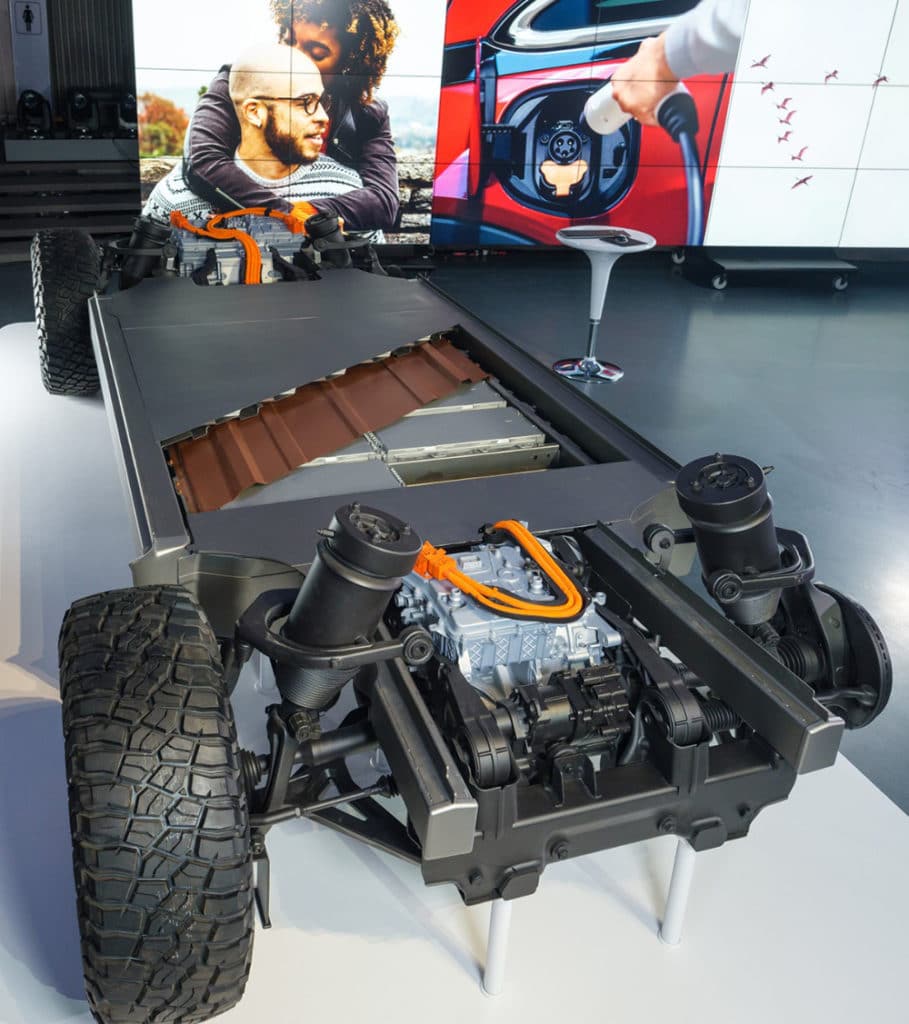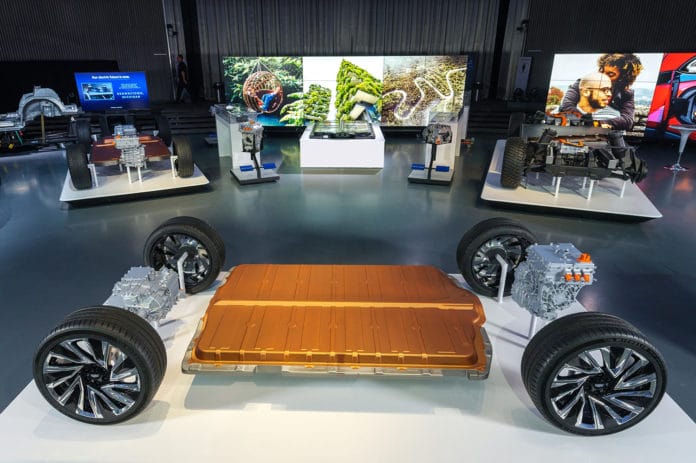On Wednesday, General Motors (GM) unveiled new batteries and a flexible global EV platform that would allow a car to travel up to 645 kilometers on a single charge. The product supposed to use in competition with Tesla, the leading seller of electric vehicles in the United States.
The new so-called Ultium batteries, joint development of GM with LG Chem, are unique in the industry because the large-format, pouch-style cells can be stacked vertically or horizontally inside the battery pack. “This allows engineers to optimize the storage of energy and the design layout of each vehicle,” said the Detroit giant in a release.
Ultium’s energy options vary from 50 to 200 kWh, which could allow a range, estimated by GM, up to 645 km (400 miles) or more with a full load with an acceleration from 0 to 96 km/h (0 to 60 mph) in only 3 seconds, the same acceleration a the upcoming 100% electric Hummer. Tesla’s biggest battery is 100 kWh, available in the Model S and Model X, which is one of the biggest batteries currently available.

Electric vehicles powered by Ultium batteries are designed for level 2 and DC fast charging. Most will have 400-volt batteries and a fast charge capacity of up to 200 kW, while the electric pickup and SUV platform will have 800-volt batteries and a fast charge capacity of 350 kW. Motors designed in-house will support the front-wheel drive, rear-wheel drive, all-wheel drive, and performance all-wheel drive applications.
The Cruise Origin, a self-driving electric shared vehicle, shown to the public in January 2020 in San Francisco, was the first product revealed using GM’s third-generation EV platform and Ultium batteries. The new electric Cadillacs Lyriq SUV will also roll with this Ultium battery.
GM’s collaboration with LG Chem will help reduce the prices of the technology under $100/kWh, against a little over $300 for lithium-ion batteries. The cells use patented low cobalt chemistry, and ongoing technological and manufacturing advances will further lower costs.
The company plans to sell more than 1 million electric vehicles by the middle of the decade. According to executives, until 2025, GM will spend more than $20 billion in exhaust-free electrical technology development.
